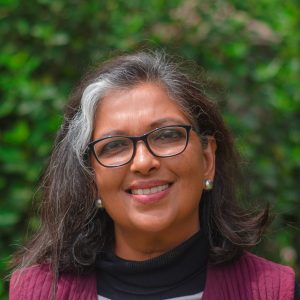We live in an age where voices are made to drown as soon as they are raised. It takes courage to stand up for what one believes in. It takes even greater courage to continue to stick to fighting for a cause in face of threatening consequences. Split-a life by Taslima Nasrin continues the chronicling of the eventful journey of the author, secular humanist, feminist and physician. Already a controversial figure in her country Bangladesh, she became known internationally after a fatwa was issued against her in 1994 for her writings.
Split continues the author’s story in another volume. It has been translated from the Bengali version by Maharghya Chakraborty, and is published by Penguin Random House.
Split- a life by Taslima Nasrin
Taslima Nasrin is forthright and unapologetically honest about her views on issues that matter. One may not always agree with her on the debates she outlines in her writing, but one can always be sure that what she writes is not clothed in diplomacy. It is brazenly outright.
The reader gets a sense of the varied experiences that have shaped Nasrin, through the instances that she narrates in the book. The book is not chronological in a strict sense, but covers roughly the period of her life from the beginning of her career as a medical doctor, her gradual foray into the literary realm and the publication of her book Lajja that acted as a catalyst to the ‘fatwa’ issued against her.
There is a wry sense of humour and satire that flows throughout the book. There is humour woven into the lines no matter how serious a matter they are talking about. A common advice given to writers is “Show, Don’t tell”. This is so evidently and seamlessly demonstrated in this book. There is a lyrical quality to the prose, which explains why the medical doctor turned into a writer.
There are many themes which run through the book. The power dynamics between men and women and the survival of women in a highly patriarchal society is one of them. She touches upon the effects of poverty and the pervasive vicious cycle it puts one into. This heart wrenching discovery was made in her work as a doctor where she associated with the poor.
Politics and Religion
Their politics was never about the welfare of the people. It was, and remained, solely about amassing power. Every political party was singularly dedicated to devising ways in which power could be concentrated in their hands by hook or by crook, and their primary objective remained consumption of the ensuing spoils.
A major portion of the book also talks about the political scenario in Bangladesh. She writes boldly about the political scenario in Bangladesh. One of the most poignant moments in the book is her recount of the aftermath of the Babri Masjid incident. She speaks at length about the horrors that this incident sparked off in the neighbouring Bangladesh.
As a medical doctor, her day job finally merges with her literary concerns as she deals with the aftermath of the Babri masjid incident in India. We are all familiar with the gruesome riots that ensued in India, Nasrin paints an equally heart wrenching picture of the impact of this incident in Bangladesh where communal hatred also raised its ugly head. She treats the victims of the riots on one hand as a doctor, and on the other, as a writer she is deeply concerned with the scenario. Her very humanistic point of view is touching. Split- a life gives a deep insight into this. The entire experience of witnessing communal discord in her country have way to her book Lajja. The book was banned and instigated stiff opposition against her.
“Do nations need a religion? It is the people who need it. The nation is not one individual”
Psychological grasp
I had always actively distanced myself from the various ailments in the house: Father was afflicted with masculinity, Mother suffered from religion and Dada was obsessed with his wife Mumu.
The book also reveals Taslima Nasrins grasp of human psychology. As she recounts her experiences she is also wrestling with questions as to why a particular person behaved the way he or she did. She offers her unique insights into the person’s mind.
Even when it comes to herself and her relationships she grasps the emotional and psychological nuances and workings of the same. One of the most poignant chapters in the book is ‘I could never touch you’. It exemplifies all that makes Nasrin a great writer- the manner in which she describes the pain and longing for a lost lover and a relationship that has ended. As she writes about her life and her interactions with various poets, there is a generous sprinkling of poetry written by her contemporaries in the narrative. This adds to the beauty of the book.
The Gender story
So the only course had been the one available to most women if they wished to escape their fathers house- exchange it for their husband’s.
She is open and brazen about gender issues that are very important for her. The book is filled with examples of gender inequality in a patriarchal society. Some of these examples and issues are serious ones concerning the violence and discrimination that women experience. Others are little day to day instances that put women in a secondary position. The book talks about both these kinds of instances that she has seen around her, or experienced herself. She comes out sharply and strongly against these inequalities.
Split is a powerful book, written by a woman whose name evokes more powerful reactions. Not many uphold and defend their right to freedom of speech as Taslima Nasrin has done. Split by Taslima Nasrin an intense read which provides a glimpse into the mind of one of the key thinkers of our times.
Title: Split: A Life
Author: Taslima Nasrin ( translated by Maharghya Chakraborty)
Publisher: Penguin Random House
Genre: Autobiography




